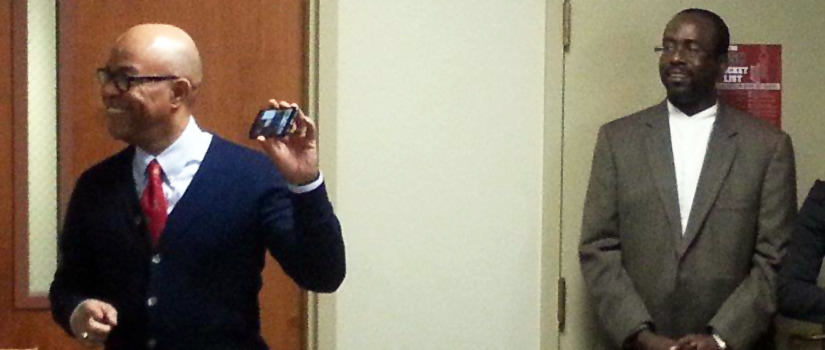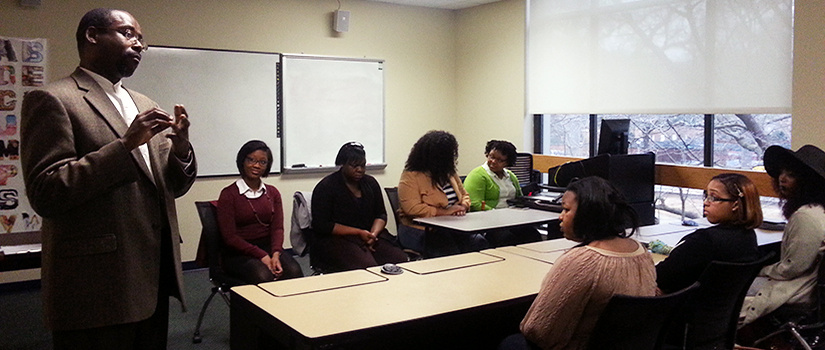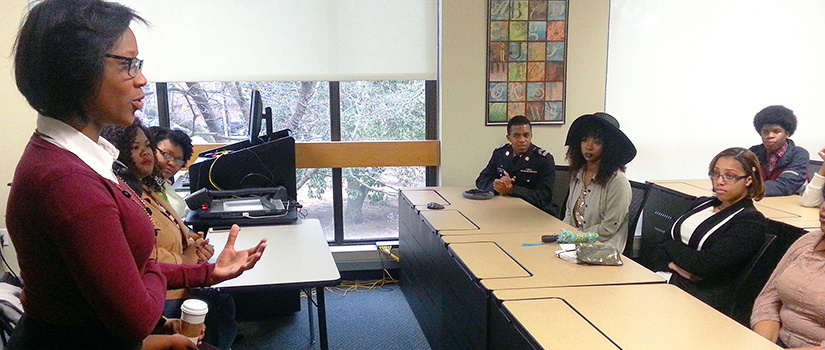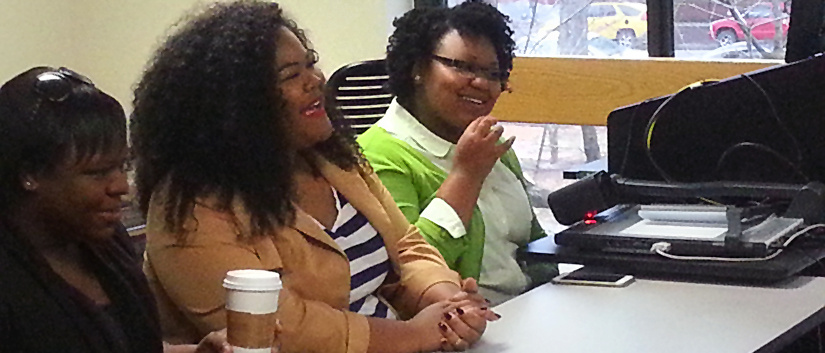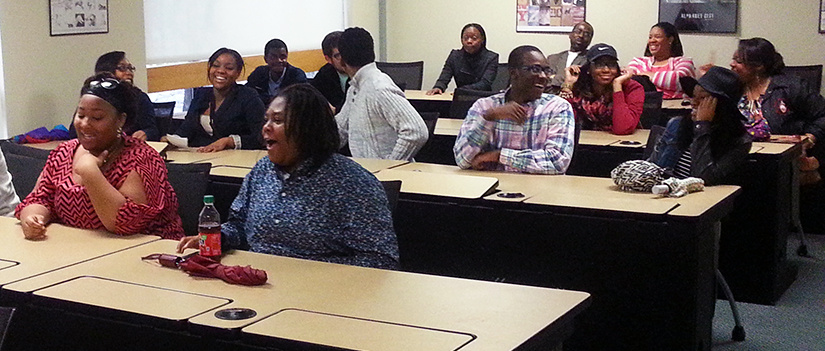When asked what would be helpful, they responded that they would love to go to a college class.
This trip is a result of Associate Professor Daniella Cook's PDS (Professional Development Schools) work at Lower Richland High School (LRHS). Dr. Cook is also the program coordinator for Secondary Social Studies in the Department of Instruction and Teacher Education at the College of Education. She has initiated and fostered this new a PDS program with LRHS by listening first, observing second, and responding third.
Rapid connections between LRHS, the College of Education and USC have solidified the resolve to reach high school students and ignite their curiosity to achieve. The idea of this campus visit germinated from feedback listening to students at an open house that Cook arranged at LRHS last Fall.
Cook reached broadly across campus using the connections that she had built up over the years and had an impressive representation from the USC faculty. Among them, Associate Department Chair of Instruction & Teacher Education and Director of the Office of Educational Outreach Dr. Edwin Dickey; Educational Studies Associate Professor Dr. Christine Chirstle; Interim Director of African American Studies (AFAM) Dr. Todd Shaw; and College of Arts and Sciences Associate Professor in English Dr. Qiana Whitted.
"Drs. Shaw and Whitted met with the LRHS Gay-Straight Alliance students during the LRHS open house and had an amazingly powerful conversation" says Cook. "Towards the end of their conversation, Dr. Whitted asked the students what would they like to know about college and, what would be helpful? The students said that they would love to go to a college class." Cook heard this, and as a facilitator, she began to help make this great idea happen.
"Ask people what they need and what would be helpful and then give it to them!" - Dr. Daniella Cook
In a follow-up with Shaw and Whitted, Cook mentioned her students’ wish to attend class and asked them if they might be amenable to making that a reality this Spring. Shaw and Whitted identified two classes that might be of interest in AFAM Studies that would more likely appeal to students across different majors - Medical Experimentation and the Black Body Carlina de la Cova at Currell College 203 OR African American Theater Marvin McAllister in Gambrell 246.
The objective of this engagement was to reach students who have a lot of potential but are often overlooked. Cook relied greatly on the assistance of Kimberly Grace, a counselor at LRHS, and Ashley Silvera, a first-year social studies teacher at LRHS and former graduate of the College of Education. "What is really exciting and one of the things that I admire at LRHS is the cultivation of leadership in teachers and educators -- broadly speaking counselors & social workers. These are two of LRHS' youngest educators who chaperoned this fieldtrip."
Twenty-six students from grades 9-11 filed into Wardlaw classroom at 9:00 a.m. to begin their four-hour journey of Q&A, observations, socialization, and ultimately an inside look into campus life.
The day began with a lighthearted greeting and sincere welcome from College of Education Dean Lemuel Watson who then introduced co-host Dr. Todd Shaw. Cook planned a diverse agenda that would spur inquiry and engagement. To better orient the LRHS students to campus life, Cook thought it would be insightful for them to hear from USC students and their perspective so she invited USC Student Body President Lindsay Richardson and a "Rap Panel" of seasoned undergraduates to address questions.
Richardson spoke to the group about opportunities to become involved in various interest groups on campus, applying for scholarships, and engaging faculty and staff for guidance as well providing her own personal reasons for choosing to attend USC. The "Rap Panel" consisted of undergrads - Broadcast Journalism majors DeShana Bethea and Emmonie Crumblin and Honors College & African American Studies major Karli Wells. This "Rap Panel" broke the ice with a provocative and honest exchange of Q&A. Nothing was off limits. The panel delved into their personal journeys of deciding to attend USC, how they chose their majors, who had helped them, and what their future plans were upon graduation. They took questions from the LRHS students on their concerns, interests, and even how they dealt with difficult personal decisions and current events. The take away from this engagement was simultaneously sobering, lighthearted, and inspiring.
Dean Watson sponsored lunch for the kids at Bates Dining Hall. Cook believes that it is important for kids to get the feel for college. And dining halls are a part of that experience. Afterwards, the group visited the Booker T. Washington Exhibit, had an informal tour of the USC campus, and stopped by the Russell House before heading back to the school bus.
"Giving them a vision for what they can aspire to – something that is concrete. So is going to a class and realizing that this is pretty interesting stuff – I can do this" says Cook. "So often when we talk about college, we talk about SAT scores, ACT scores, we talk about college in such a way that it doesn't peak the intellectuality curiosity of kids. That is important about a really solid education. It's not just about getting a degree and getting a job. It's so you can be a fully learned human being to participate in a democracy. Going to classes and hearing conversations, participating in discussions, and learning how different professors are approaching the content - that can be really mind blowing for a kid."
Counselor Kimberly Grace not only is working closely with her students on their LRHS courses but she is also assisting them with their college admissions requirements.
Cook explains that her desired tangible outcomes from this trip are: 1) This was a pilot experience to see if these types of visits might be replicated on a semester basis to target students who are often in the middle (B & C students) who can completely do college work with support; 2) This visit in itself is an outcome - the LRHS open house last Fall has resulted in personal experiences with faculty on this campus. It is not from the students having heard about USC on the news but they are building a relationship with the faculty here.
